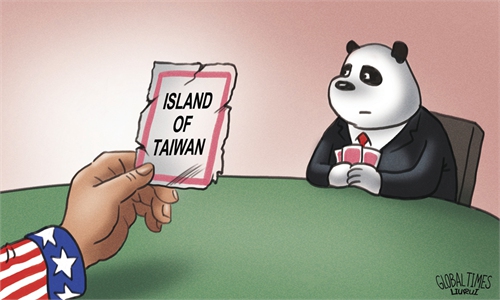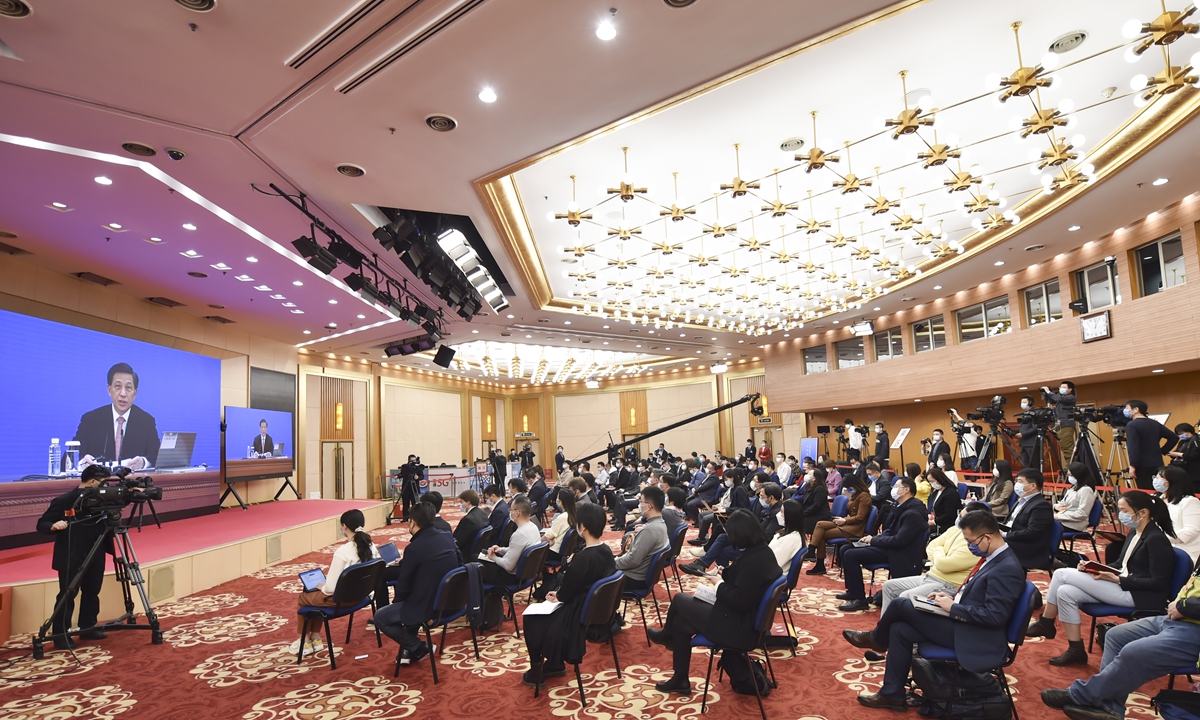
Zhang Yesui, spokesperson for the fifth session of the 13th National People's Congress, takes reporters' questions via video link on March 4, 2022. Photo: Xinhua
China on Friday began its annual two sessions, where national legislators and political advisors will discuss and decide on important matters of national concern, and amid sporadic domestic COVID-19 resurgence and major changes internationally this year, the legislative events, which have a broad domestic participation, will showcase the success of China's whole-process people's democracy, observers said.
On Friday, Zhang Yesui, spokesperson for the fifth session of the 13th National People's Congress (NPC), told a press conference that China's national legislature is scheduled to open the annual session on Saturday in Beijing which will end on March 11, with 10 items on the agenda. On Friday afternoon, the fifth session of the 13th National Committee of the Chinese People's Political Consultative Conference (CPPCC), China's top political advisory body, held its opening session.
Among the eight questions that NPC spokesperson Zhang took at the press conference, two were about the whole-process people's democracy in China. Zhang said it is a key concept that the leadership of the Communist Party of China with Xi Jinping at its core has developed and is underpinned by a well-established set of institutional procedures, as well as full participation and practice.
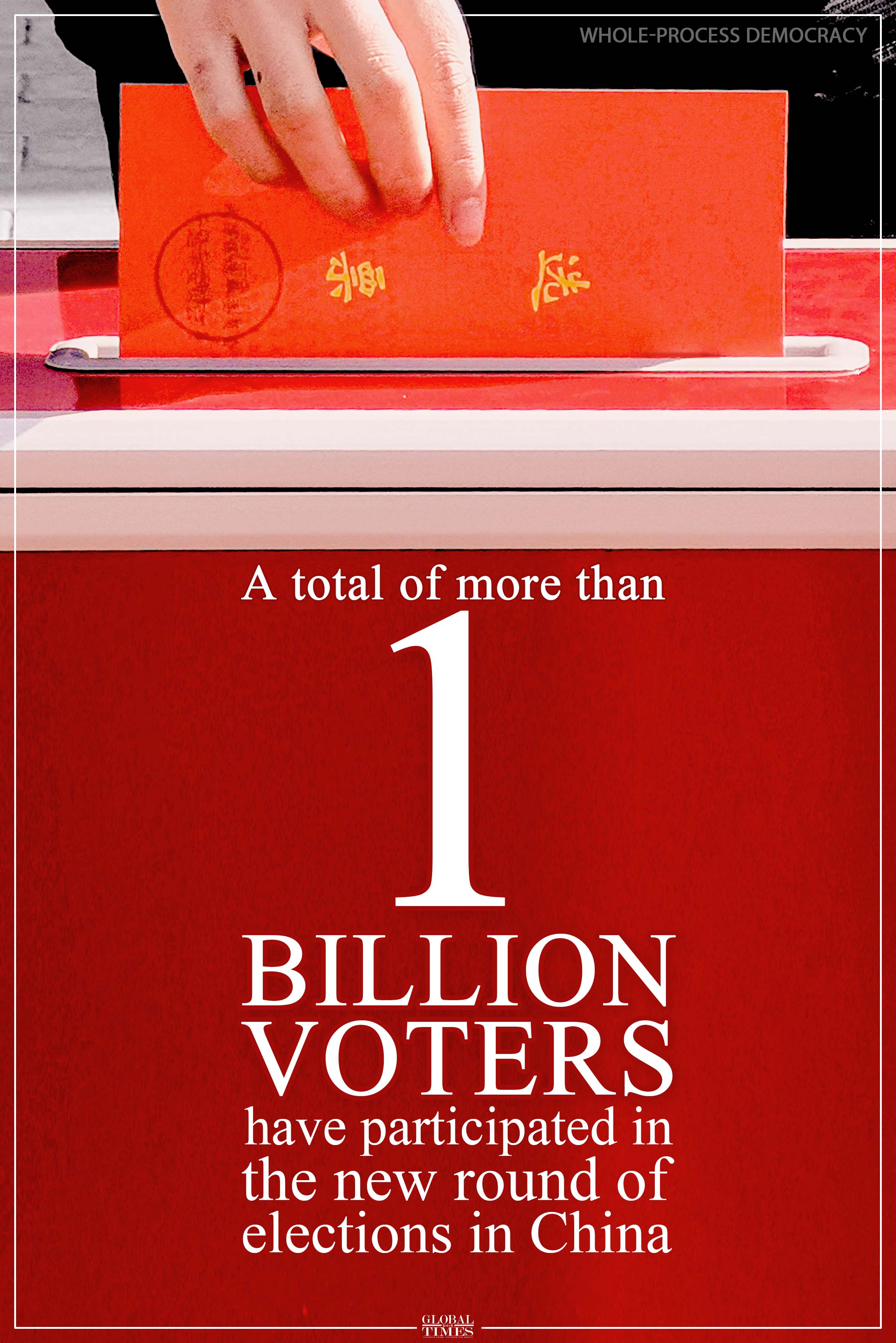
More than 1 billion voters participate in new round of elections in China Graphic: Xu Zihe/GT
The two sessions are a window to see how China's whole-process people's democracy works, said legislators and political advisors reached by the Global Times.
Zhu Lijia, a professor of public management at the Chinese Academy of Governance, told the Global Times on Friday that "the most important characteristic of socialist democracy is the democracy of participation and of consultation. People take part in formulating, consulting and supervising this process, which has much significance."
At the annual two sessions, China's democratic procedure was manifested in an intensive manner at the highest level, Chang Jian, director of the Center for the Study of Human Rights at Tianjin-based Nankai University, told the Global Times on Friday.
The effectiveness of China's democracy is proven by China's stability and socioeconomic development amid major internal and external challenges and rapidly changing situations in the past few years, Chang said, citing the success of epidemic control and the delivering of a splendid Olympics as examples.
Zhang also said that "Democracy is not an ornament just to look good. Democracy is to solve problems of the people. Whether a country is a democratic country or not, actions speak the loudest and the people have the final say. Practice proves China's democracy is genuine, effective, rooted in China's history, culture, and tailored to Chinese reality," Zhang said.
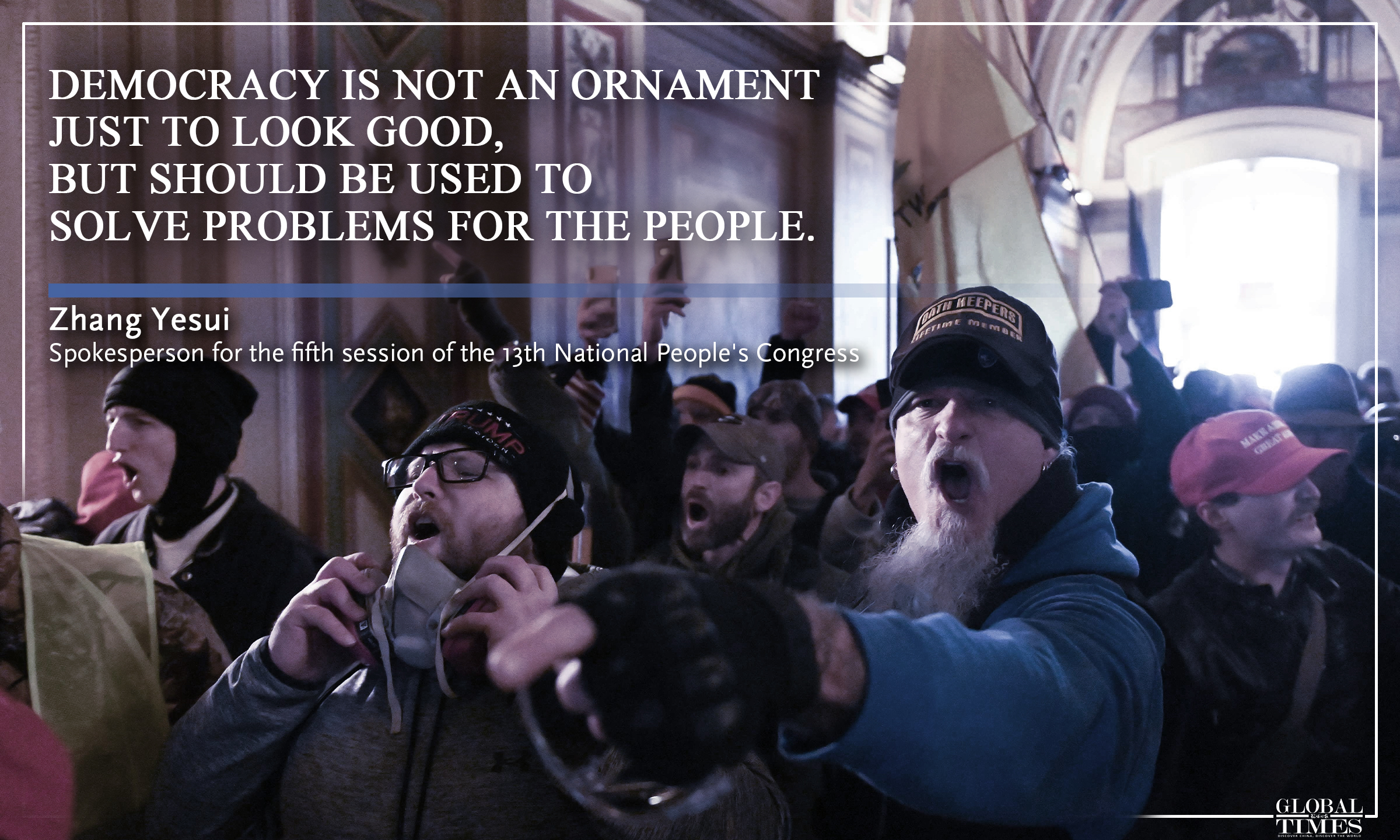
NPC spokesperson speaks on democracy Graphic: Xu Zihe/GT
"There are no identical democratic systems in the world, nor is there a one-size-fits-all mode of democracy. When it comes to democracy, there is always room for improvement," Zhang said. "On the basis of mutual respect, we are willing to engage exchanges and mutual learning with other countries to continuously enrich and better the fruits of human political civilization," he said.
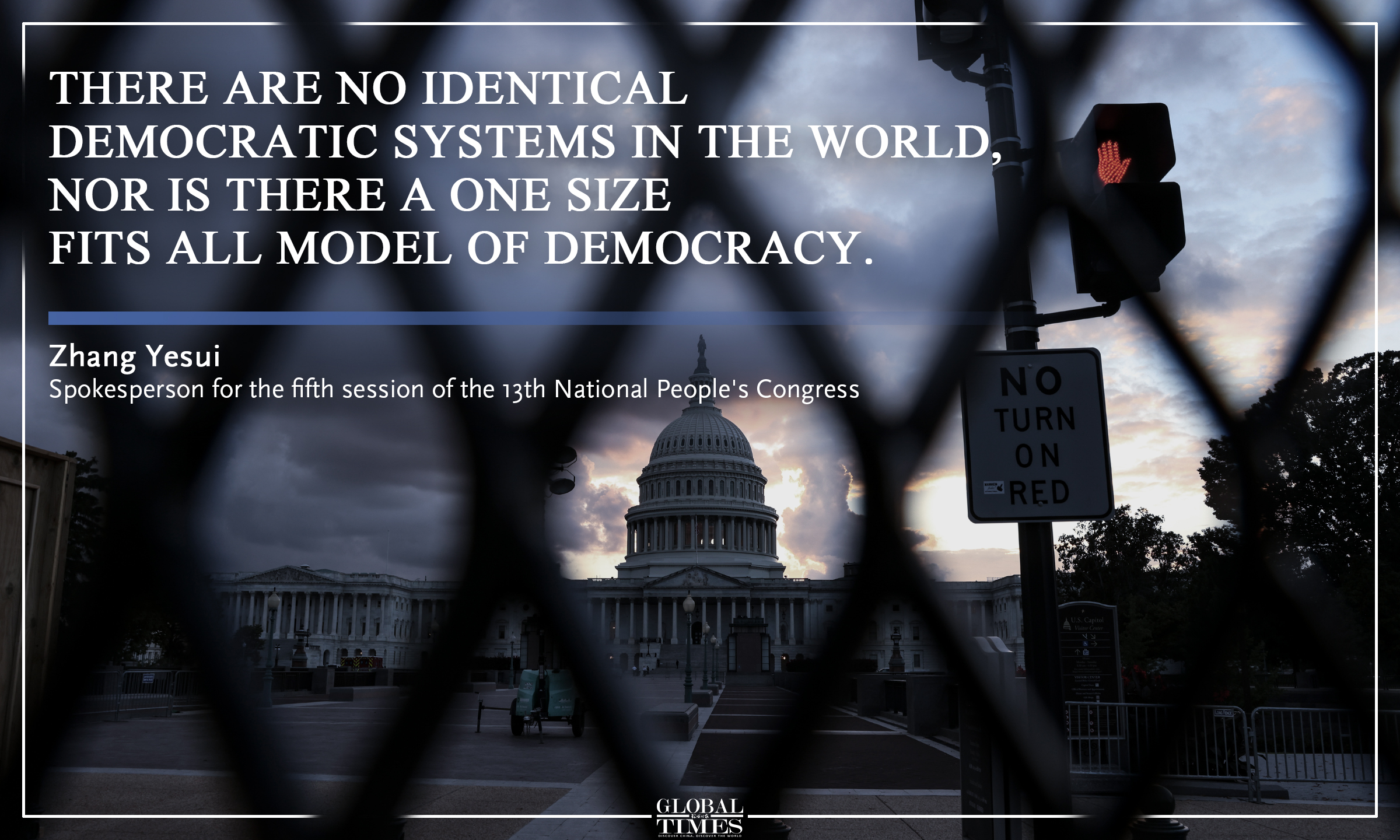
NPC spokesperson speaks on democracy Graphic:Xu Zihe/GT
This is the latest comment from a senior Chinese official to reiterate China's understanding of democracy, a common value of humanity. The remarks come at a time when the US has ramped up efforts touting Western democracy and using ideology and values to draw small cliques to target China.
Yury Tavrovsky, head of the "Russian Dream-Chinese Dream" analytics center of the Izborsk Club, said that the whole-process people's democracy is an integral part of the concept of "socialism with Chinese characteristics," which is designed to ensure the transformation of China into a powerful, modern, democratic and socialist country by 2049.
The successful development of China and its concept of democracy have been perceived as a "deadly threat" by the US to its concept of "capitalism with American specifics," which is also the foundation of the US' democracy and human rights, Tavrovsky told the Global Times, noting that this explains the growing bitterness of the "Cold War" against China.
Observers also pointed out the biggest problem of US democracy lies not only in its democratic system that is combative, but also in the arrogance in its system since it is trying to monopolize the democratic narrative and lying to smear others.
While the US has increasingly shown a Cold War mentality in rivalry with China, in its so-called democracy summit, Indo-Pacific Strategy and revitalization of NATO, Zhang said that to draw lines and small circles based on ideology is against the trend of the times and will lead nowhere.
"I want to stress that how the US enhances its own competitiveness is its own matter. But making China a strategic rival and using China's development as an excuse would only destroy the mutual trust and eventually hurt US interests," Zhang said, in response to a question on the US trying to enhance R&D capabilities by citing China as a threat.
On another question concerning China's anti-foreign sanctions law, Zhang said China is using legislation to counter foreign interference and long-arm jurisdiction. It is defensive and essentially different from some countries' unilateral sanctions.
Some observers compared China's smooth and orderly two sessions, which focus on solving practical problems, with the US' congressional system.
President Joe Biden dedicated one fifth of his State of the Union address before Congress to the Ukraine crisis, and on domestic affairs, he talked lengthily about ambitious long-term plans - citing the "China threat" unsurprisingly - without specific solutions to rising inflation, Lü Xiang, a research fellow at the Institute of American Studies at the Chinese Academy of Social Sciences, told the Global Times on Friday.
Congressmen make irresponsible remarks and won't take any responsibility. The political division in the US is wider than ever and has become "vetocracy" just to hinder the opposition's ideas. The harder the US works to maintain its status as a "beacon of democracy," the more quickly its system decays, Lü said, noting the only topic that can get bipartisan support easily is external affairs where the US always plays a troublemaking role.
From Iraq to Afghanistan, from so-called "democratization" in Africa and Latin America to the "Arab Spring," the consequences of US exporting its democratic model are obvious, experts said.
Expounding on China's democracy and pointing out loopholes in the US system aims to set the facts straight and tell the international community what is right and wrong. Chang noted behind the battle in the democracy narrative between China and the West is the fact that China is taking the initiative to define its development path and system, and we have full confidence in that.
China always welcomes exchanges and communication on democratic models based on mutual respect, experts said, adding that any country seeking a hegemonic interpretation of democracy is the biggest enemy of the common value.
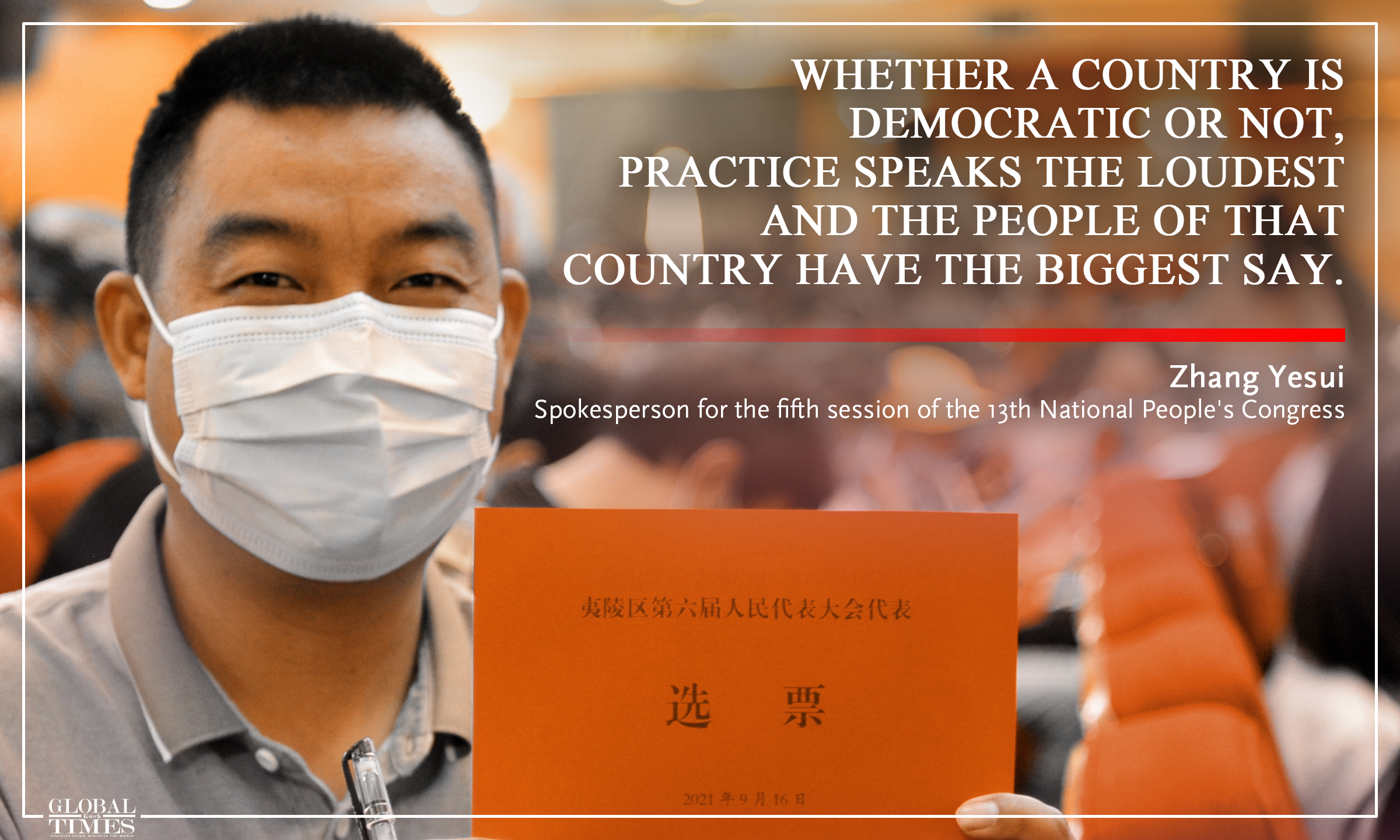
NPC spokesperson speaks on democracy Graphic:Xu Zihe/GT
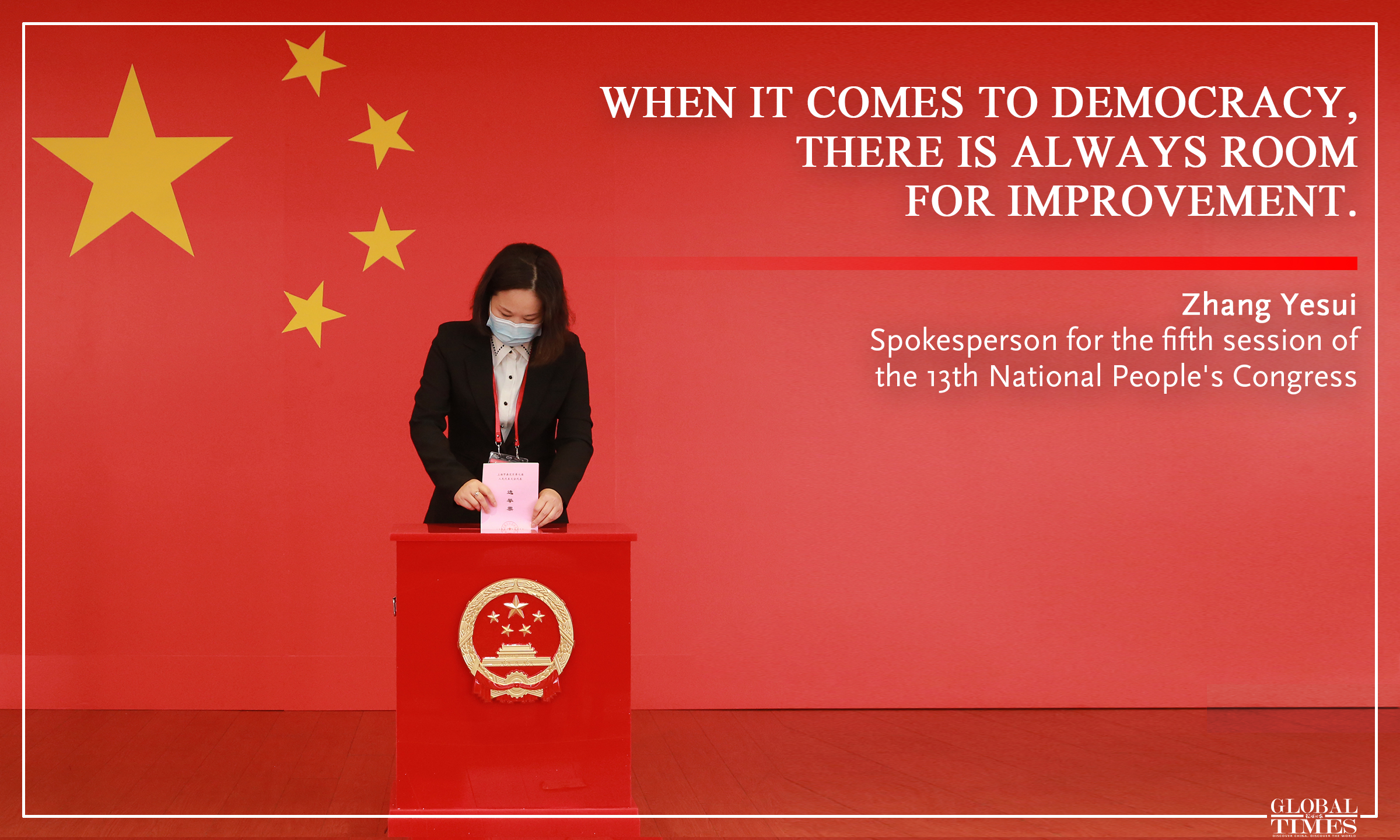
NPC spokesperson speaks on democracy Graphic:Xu Zihe/GT
